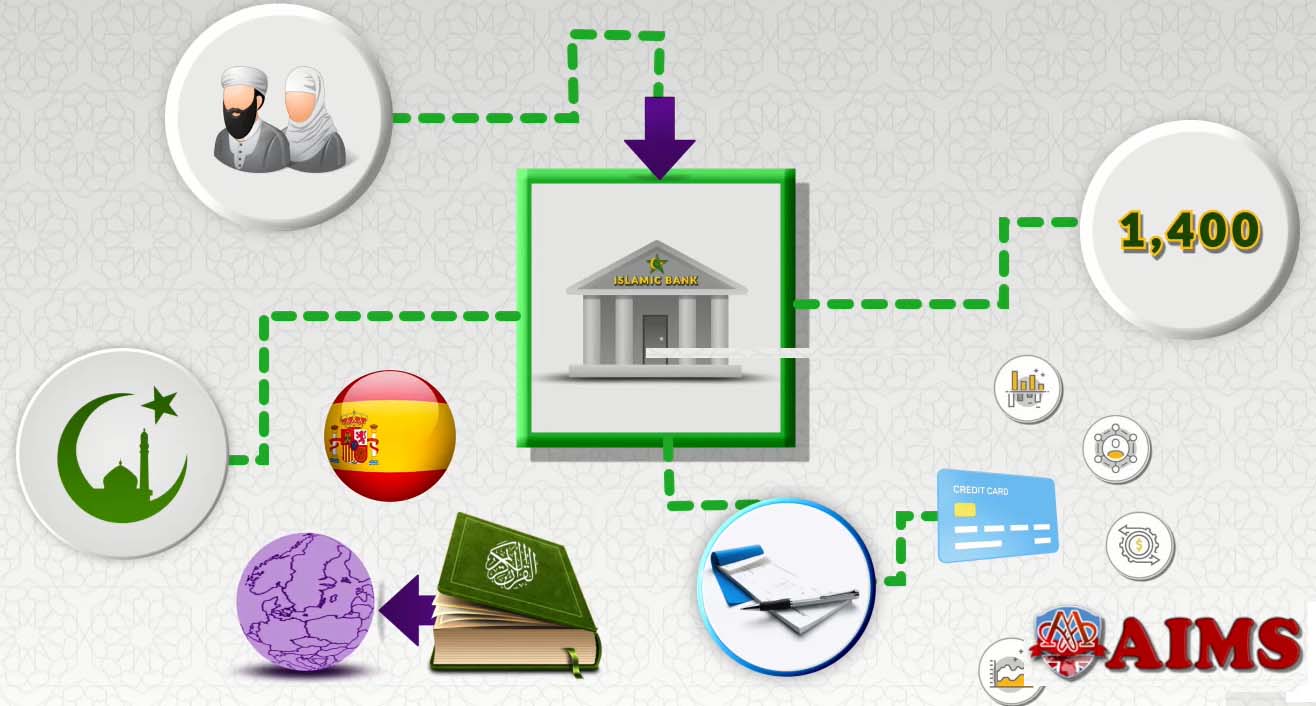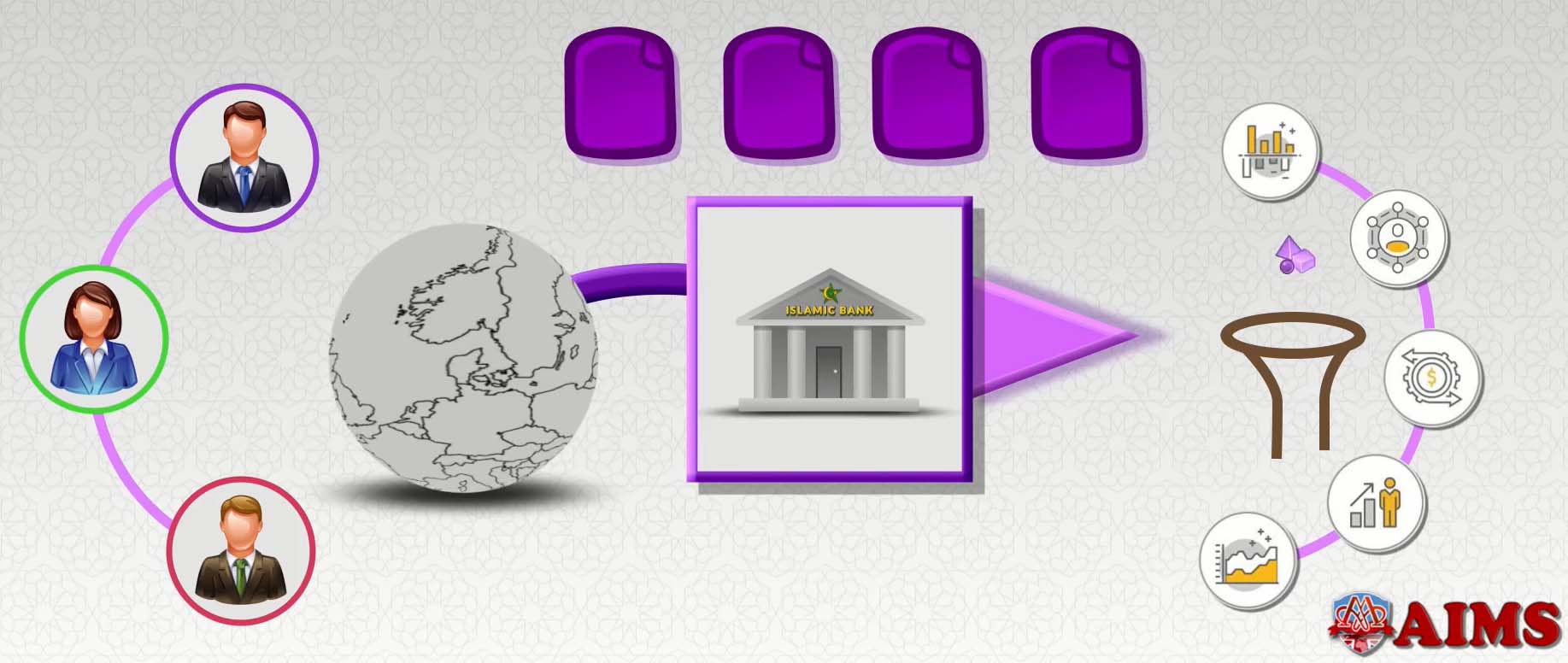Evolution of Islamic Finance in Europe:
Europe is home to a growing community of Muslims and a fast-growing Islamic finance industry. The continent has the largest Muslim population outside of Asia, with more than 95 million followers of Islam. Europe is home to the world’s second-largest stock exchange market after the New York Stock Exchange, which offers several opportunities for Islamic banks and other financial institutions. Europe has strict banking regulations and capital requirements that make it challenging for new entrants to establish themselves within the region. However, with increasing efforts to harmonize rules and policies within the European Union (EU), the opportunities for Islamic banks in Europe are expected to grow exponentially in the coming years. The current trend of Islamic finance in Europe stems from its origins. The influence and scope of Islamic banking in Europe have been refined over the centuries and today may be stronger than ever.

Islamic Economics and Finance: A European Perspective
From a European perspective, Islamic economics and finance present both challenges and opportunities. As ethical finance becomes increasingly mainstream, the principles of Islamic finance – such as risk sharing, prohibition of interest, and the promotion of socially responsible investments – resonate with a broad audience. However, regulatory challenges persist. Adapting the Western financial regulatory framework to accommodate the distinct principles of Islamic finance is a complex effort. The independent committee of Islamic finance in Europe has been working diligently to address these issues, charting a course for the development and future growth of Islamic finance in Europe.
1. European Central Bank and Islamic Finance
The European Central Bank’s recognition and support of this sector further underscores its rising prominence. Recognizing the unique features and principles of Islamic banking, the ECB has taken various initiatives to integrate Islamic finance into the European financial system while ensuring regulatory compliance. Notably, the ECB is actively involved in formulating regulations that accommodate the specificities of Islamic finance, such as risk-sharing and asset-based financing, while aligning with the overarching principles of financial stability and integrity. These initiatives demonstrate the ECB’s commitment to fostering a diverse and inclusive financial ecosystem in Europe, accommodating the needs of both Muslim and non-Muslim populations.
2. Independent Committee of Islamic Finance in Europe
To promote the development of Islamic finance in Europe, an independent committee was established in 2009 by the European Central Bank (ECB). The committee aims to provide a platform for dialogue and cooperation between market participants, regulators, and other stakeholders. It also works towards developing a common framework for the regulation and supervision of Islamic financial institutions in Europe.

Development of Islamic Finance in Europe:
Today, the banking industry continues to grow amid the challenges and opportunities that are present in Europe. There are good reasons why Islamic banking in Europe is on the rise, starting with the strength of the financial institutions that are based in Islamic countries.
- The combination of solid Islamic economics and sound Islamic banking practices has helped spur growth in Western countries.
- In addition, the globalization of the financial markets has contributed to the rise of this form of banking. This means more investment opportunities which means that Islamic banks are growing stronger and becoming even more prominent in Europe.
- Combine that with the improved business opportunities as companies from Islamic countries compete around the world and you have an institution that only sees growth for the foreseeable future.
Top 7 European Islamic Banks:
The European banking sector is undergoing a massive transformation. The region’s capital markets have been opened up to investors, and now its financial institutions are competing with each other for the business of retail clients. This is making it much easier for new Islamic banks to get started in Europe. But getting listed on a stock exchange is only the first step towards expansion. Financial institutions also need to find ways of encouraging new customers to use their services. That’s where offering customers a range of Islamic banking products can help.
Here is a list of some European banks that offer Islamic financial products and services:
1. AL RAYAN BANK (UK):
Al Rayan Bank is one of the oldest and most prominent Islamic banks in the UK. The bank offers a comprehensive range of Sharia-compliant financial products including personal banking, home finance, and commercial property finance.
2. BANK OF LONDON AND THE MIDDLE EAST (UK):
BLME is a leading provider of Islamic finance in Europe, offering a wide array of products and services that range from wealth management to corporate banking.
3. EUROPEAN ISLAMIC INVESTMENT BANK (UK):
EIIB, based in London, provides a wide spectrum of investment banking services that adhere to Islamic banking principles.
4. ISLAMIC BANK OF BRITAIN (UK):
The Islamic Bank of Britain, now known as Al Rayan Bank, was the first Islamic bank in the UK. It offers a full suite of banking and financial services in compliance with Sharia law.
5. KUVEYT TURK PARTICIPATION BANK (Germany):
Kuveyt Turk is the first Islamic bank in Germany to provide services like current and participation accounts, funds transfer, and foreign currency transactions that strictly comply with Islamic finance.
6. QATAR ISLAMIC BANK (UK):
QIB UK offers a wide range of Islamic banking services including real estate financing, wealth management, and treasury services.
7. CHAABI BANK (France):
A subsidiary of the Moroccan Banque Populaire Group, Chaabi Bank has established itself as a major player in the Islamic banking sector in France. It offers a range of Sharia-compliant products and services.
How to Find Islamic Finance Jobs in Europe:
Finding jobs in the Islamic finance sector in Europe can be a navigable path, provided you have the right resources and qualifications. A key stepping stone could be enrolling in reputed institutions like AIMS’ Islamic Finance Institute. AIMS offers:
- A comprehensive suite of online Islamic banking courses, providing a profound understanding of the principles and complexities of Islamic finance.
- Another notable credential is the CIFE which is widely recognized as the best certification in this sector. This certification can significantly enhance your job prospects, opening doors to roles within established Islamic banks in Europe.
- Moreover, pursuing an MBA in Islamic Banking offers an in-depth, holistic understanding of the management and strategic aspects of Islamic Finance, making you a valuable asset for any Islamic financial institution.
- For those interested in research-oriented roles, a research-based doctorate in Islamic finance is a worthwhile option. This kind of advanced degree can position you for high-level roles in policy-making, academic research, and consulting within the field of Islamic finance in Europe.
In conclusion, the key to finding Islamic finance jobs in Europe lies in acquiring the right kind of specialized education and utilizing various job portals and networking platforms effectively.

Opportunities and Challenges:
Opportunities in Europe for Islamic Financial Institutions:
Islamic banks in Europe can leverage a large number of Muslim consumers and a large number of financial institutions, such as mutual funds and pension funds, to expand the market for their products and services. The growth of the Islamic banking industry in Europe is driven by several factors.
- One is the increasing interest of global financial institutions in offering Islamic banking products and services to their customers.
- Another is the growing demand for Islamic financial products and services by mainstream consumers based on their needs and interests.
- The large number of Muslim consumers in Europe can result in a growing demand for Islamic financial products and services.
Factors Driving Islamic Finance Growth in Europe
The strong growth of the Islamic banking industry in Europe can be attributed to the following factors:
- A large number of Muslim consumers in Europe has resulted in a growing demand for Islamic financial products and services.
- The strong demand for Islamic financial products and services by mainstream consumers has led to the rapid growth of the Islamic banking industry.
- A large number of Islamic financial institutions across Europe have made it easy for consumers to access Islamic financial products and services.
Islamic Finance in Europe: The Regulatory Challenge
Regulatory hurdles represent a significant challenge to the growth and development of Islamic finance in Europe. Predominantly, these challenges stem from the fundamental differences between conventional banking practices and the principles of Islamic finance. For instance, the prohibition of interest (riba) and the requirement for all transactions to be underpinned by tangible assets pose unique difficulties in a financial regulatory environment primarily designed for interest-based transactions. Moreover, the inherent risk-sharing element of Islamic finance calls for a distinct approach to risk management, adding another layer of complexity to the regulatory puzzle.
Key Challenges for Islamic Banking and Finance in Europe?
There are challenges found in the Islamic banking in Europe system that must be addressed for continued success.
1. COMPETITION FROM WESTERN BANKS:
The business competition will always be a challenge for Islamic banking in Europe, especially given the different parameters that European banks have to offer the public. While the Quran is the guiding principle behind Islamic banks, it does mean that to compete effectively, an evolving method of reaching new customers must be followed.
2. GROWING DEBT IN EUROPE:
The growing crisis of debt which is putting many European countries on the brink may offer the greatest challenge for all banks. Therefore, Islamic finance in Europe must be prepared for what might be a difficult time. Islamic financial institutions must offer halal mutual funds to grow the industry.
3. LACK OF AWARENESS:
Islamic banks in Europe can leverage a large number of Muslim consumers and a large number of financial institutions, such as mutual funds and pension funds, to expand the market for their products and services.
4. LACK OF SUITABLE SERVICES:
Another challenge that both retail and corporate Islamic banks face is the lack of suitable products and services to serve mainstream consumers, particularly those with lower incomes.
5. INNOVATION:
The growing demand for Islamic financial products and services by mainstream consumers, particularly those with lower incomes, is a challenge that both retail and corporate Islamic banks face in Europe. This challenge can be addressed through the development of new products and services.

Future of Islamic Finance in Europe
The future of Islamic finance in Europe looks promising. According to a report by the International Shariah Research Academy for Islamic Finance (ISRA), the European Islamic financial market is expected to reach US$250 billion by 2030. This growth is also fueled by the increasing interest from non-Muslims in ethical and socially responsible financial services.
Key Takeaways:
Islamic finance is a significant source of financing across many sectors in Europe, including mortgages, business loans, and asset-backed securities. The industry is growing, with the number of Islamic financial institutions increasing across the continent. The industry can benefit from a large number of Muslim consumers and a large number of financial institutions, such as mutual funds and pension funds, to expand the market for their products and services. The development of new products, such as sharia-compliant microfinance loans, sharia-compliant microinsurance products, sharia-compliant hybrids, and Murabahah like, is expected to address the limited availability of suitable products.
